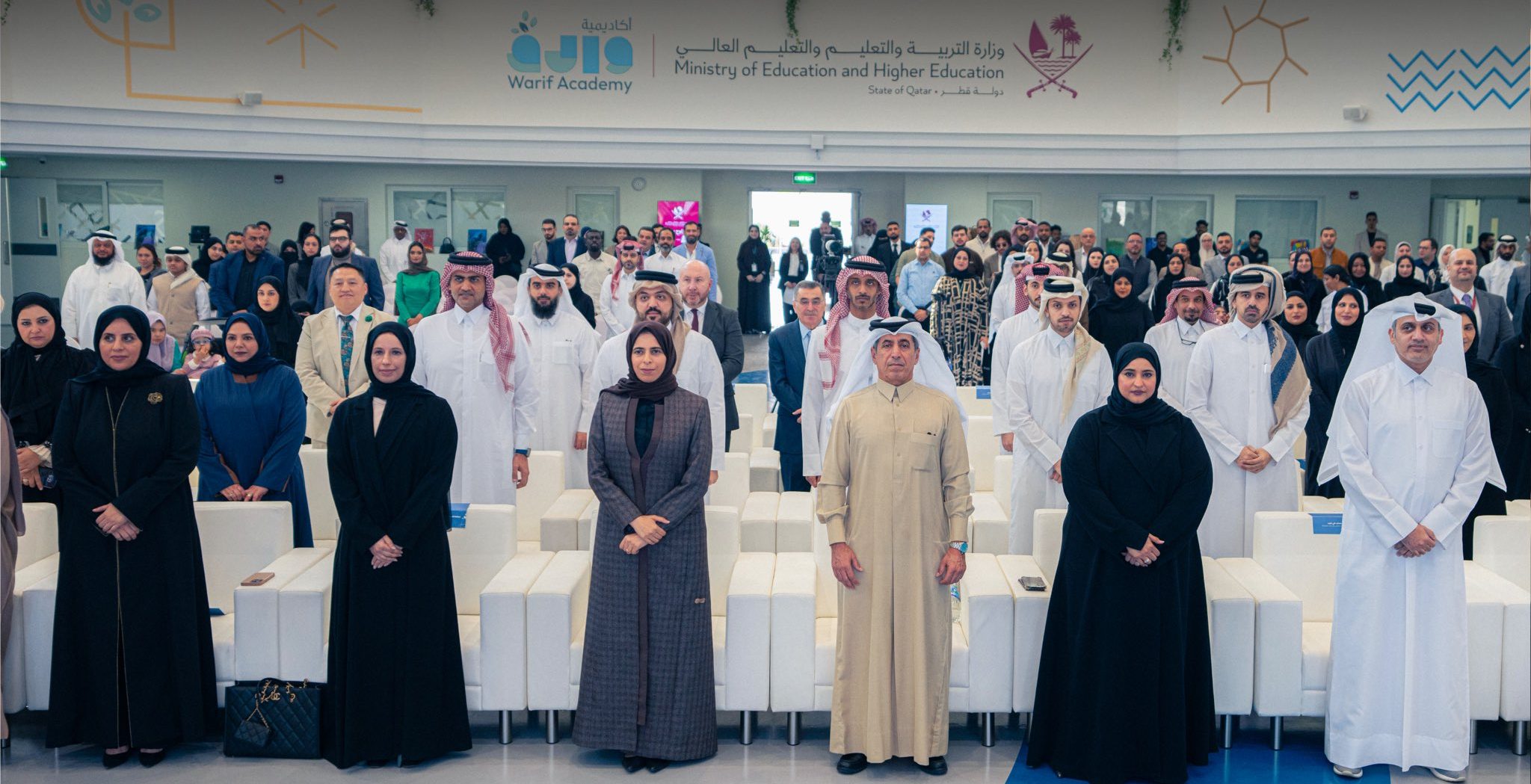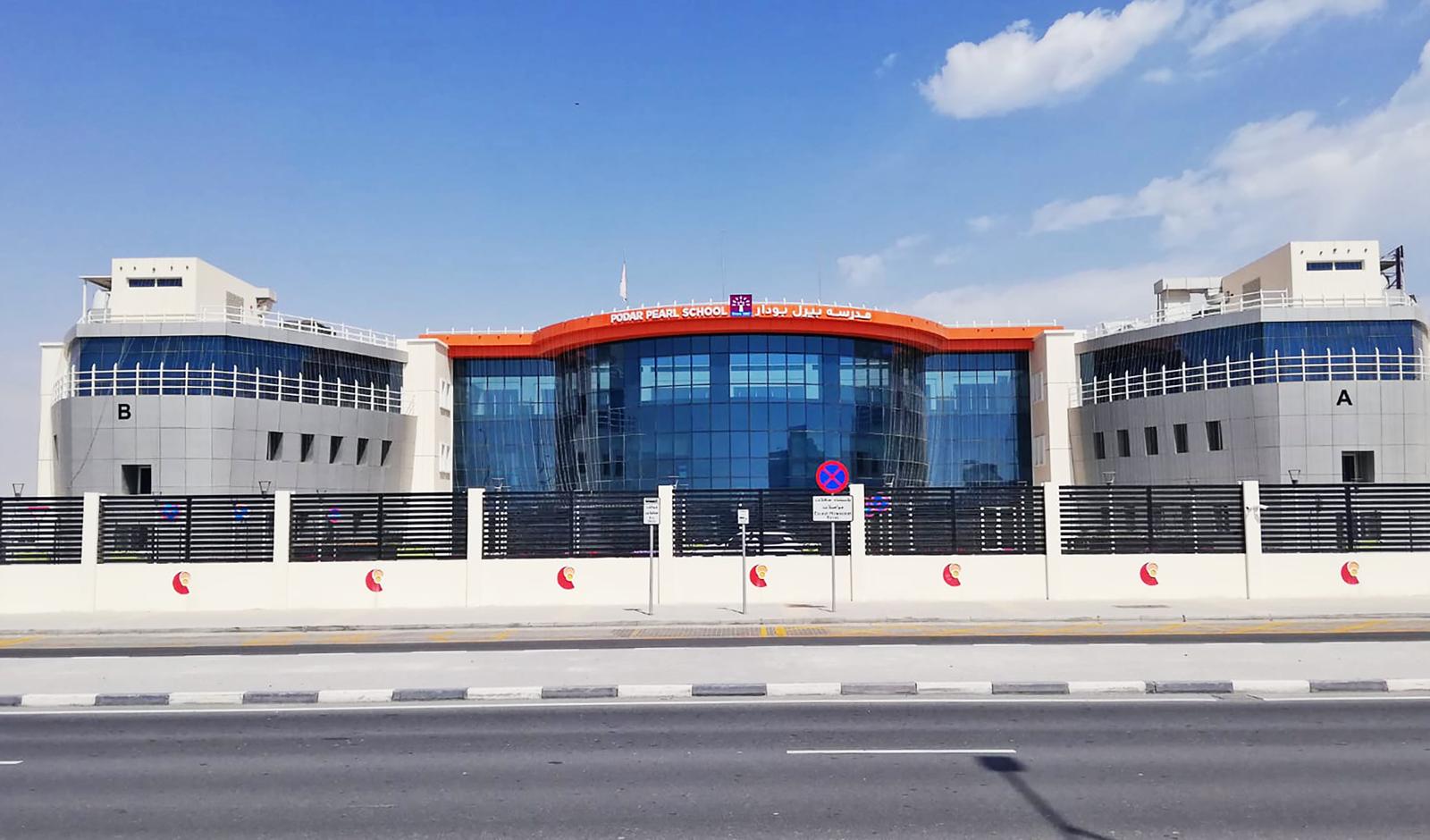All renderings courtesy of the Doha Institute for Graduate Studies
Qatar’s newest university is preparing to welcome its first students this fall, officials have announced. When it does, the Doha Institute for Graduate Studies will be one of the few academic institutions in the region to offer graduate-level research in social sciences, humanities, law, media and public administration.
A new campus is under construction north of Qatar University, and the school is planning to move into its first administration and teaching buildings this summer to prepare for its inaugural academic year.

Eventually, it will be home to a 450-seat auditorium adjacent to a lecture hall, seminar rooms and a library with up to 150,000 printed and electronic books, journals, magazines. Plans for the 100,000-square-meter campus also include student and faculty accommodations, a health clinic, child care center, cafeteria and fitness center.
The university will have two faculties: a school of social sciences and humanities, as well as a school of public administration and development economics. It will initially offer 10 two-year masters degrees, including in history, Arabic language and linguistics, media and cultural studies, philosophy and others.
Doctorate programs are being considered for the 2017-18 academic year. Speaking to Doha News, Rasheed El-Enany, the dean of the university’s school of social sciences and humanities, said:
“We’re aiming to teach (students) independent and critical thinking. We’re creating an institution that is offering something in higher education and graduate education that no other institution in Qatar is offering,” he added.
The Doha Institute – plans for which were first announced in 2013 – was founded as an autonomous entity by the Arab Center for Research and Policy Studies, a local think tank that receives funding from the Qatar government.
Small student body

El-Enany, who said he spent the better part of his career at the University of Exeter in the UK, said he envisions the Doha Institute being a research-intensive university.
The quality and quantity of published research is the primary measurement that several new ranking programs – including those by Times Higher Education and US News & World Report – have focused on when evaluating schools in the region.
El-Enany said he expects to start the 2015-16 academic year with between 50 and 60 faculty members. Employment offers have been accepted by nearly 90 percent of future staff members, who hail from Australia, Canada, the US and various Arab and European countries, he added.

The student recruitment process is ongoing across Qatar and other Arab countries, with applications due by the end of March. The school is initially targeting 15 students per program, for a total of 150 students. The size of the student body would effectively double in 2016-17 with the entry of the second cohort of masters degree students.
“The numbers are small … but the student-staff ratio is likely going to be one of the best in the world,” El-Enany.
While Arabic is the primary language of instruction, students must also be fluent in English so they can draw upon the extensive research published in that language.
In addition to offering full-time degree programs, the Doha Institute also has its eye on helping mid-career civil servants and private-sector managers become effective executives.
El-Enany said the university will offer professional development programs for working professionals, such as executive training courses during evening sessions.
However, the current focus is on preparing for the initial cohort of students, who are due to start classes on Oct. 4.
“The clock is ticking and we are getting closer and closer to the launch date this autumn,” El-Enany said. “We have an ambitious agenda in the sense that we are aiming to fill an existing education (gap) … not just in Qatar, but in the region as a whole.”
Thoughts?












